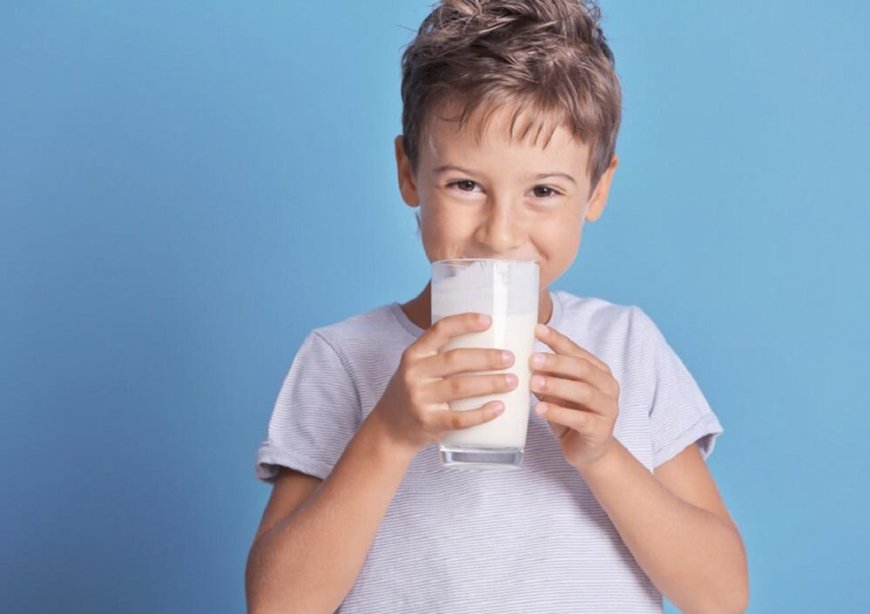How much milk should children drink depending on their age?
diet. But how much milk should children drink, depending on their age, to ensure their growth? How much milk should children drink.

Milk is one of the best foods in your baby's diet. But how much milk should children drink, depending on their age, to ensure their growth? How much milk should children drink.
One of the most common questions about children's nutrition is how much milk should children drink according to their age. It is one of the most complete foods for babies. But it is important to administer them in optimal doses to meet the nutritional requirements.
Nutrient deficiencies can be detrimental to the development and growth of little ones. In the same way, establishing a diet that is too caloric can lead to the development of excess weight, which is not advisable for your health in the medium term.
How much milk should children drink? It depends on the age!
During the first 3 years of life, children should consume about half a liter of milk a day. Thus, they meet their calcium requirement, which is around 800 milligrams a day. It's important to remember that this mineral is essential for maintaining good bone health, according to a study published in Nutrients.
From the age of 3, it is best for children to eat at least a few servings of dairy products a day. They can do it, alternating with milk and yogurt, as well as cheese. Even other fermented foods such as kefir may be included in this group. They provide a large amount of probiotics, which are live bacteria that are beneficial to gut health.
You should give your children whole milk
Basically, the milk that should be given to children (as well as adults) should be whole milk. If you remove fat from your food, you will lose a large amount of essential fat-soluble vitamins such as A and D. In addition, many dairy products on the market are fortified with vitamin D, which increases their nutritional density.
Although the fats in milk belong to the saturated group, they are considered healthy. This is because they have the optimal cis configuration at the molecular level. Only trans fatty acids are harmful to health, according to a study published in the journal Diabetes & Metabolic Syndrome.
Solutions for food allergies and intolerances
If your baby is allergic to cows' milk proteins, breastfeeding is the best alternative, if possible. In addition, there are a number of special varieties of hydrolyzed milk for this group of infants. Here, milk proteins are broken down, which prevents them from causing ailments in a hypersensitive organism.
In any case, it should be noted that the allergy to cows' milk proteins is likely to disappear on its own over the years. This is not the case with lactose intolerance.
In this situation, it is the sugar in milk - lactose - that causes numerous ailments. This condition causes stomach problems and diarrhea, for example. Milk is therefore unacceptable to the body, but dairy products such as yogurt are tolerated because they contain less lactose.
Must Read: Asthma in children: what should you know about treating it?
Offering a variety of lactose-free milk alternatives can be an effective solution to this problem.
Be careful about the amount of whole milk you give to babies
While it is a useful food, remember that whole milk is a very energetic drink. If children consume it excessively, it can create a hypercaloric context that leads to weight gain.
Every situation of overweight or obesity poses a threat to children, so it is so important to adjust the consumption of milk to their daily energy requirements. For this reason, the daily intake mentioned above should not be exceeded.
Therefore, it is important to consider how much milk children should drink depending on their age.
Baby milk is a healthy food
As you learned today, drinking whole milk is very beneficial for babies. About half a liter of milk a day would be optimal in the first stages of life. You can then add several servings of dairy products daily to your diet. However, its consumption may increase in the event of sports or specific increased nutritional needs.
However, you should always remember that it is always best to choose whole milk when consuming milk. The nutritional density of this product is higher, as is its energy content. It has more vitamins than the skim or partially skim versions.
Hopefully, we have cleared your concerns about the amount of milk your children should drink depending on their age.
